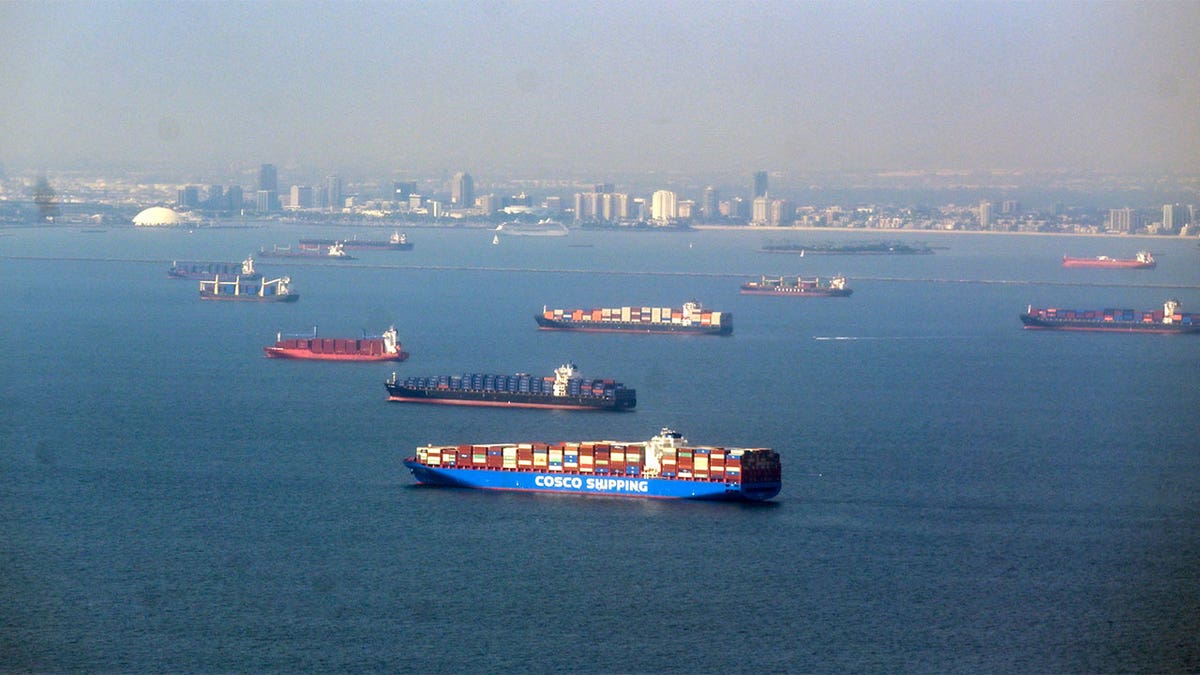Supply chain fears intensify as experts predict issues will carry into holiday season
Truckload Carriers Association's David Heller and small business owner Spencer Young on long-term solutions for supply chain disruptions.
A piece published in The Atlantic titled "Stop Shopping" is challenging what is supposedly the real problem at the center of the supply chain crisis.
Staff writer Amanda Mull began by summarizing the "similar" news stories that have emerged in recent weeks which involve loads of goods like "toilet paper and exercise bikes and future Christmas presents" being stuck on cargo ships for weeks or months on end how everyone involved from sailors to truckers is working "as fast and hard as they possibly can" but that "it’s not fast or hard enough."
WASHINGTON POST OPINION SECTION PUBLISHES SERIES OF PIECES DEFENDING, LOWERING EXPECTATIONS OF BIDEN
"What news stories generally don’t show you is where all of this stuff is going. At least anecdotally, much of it seems to be headed directly into the overflowing package room in my apartment building," Mull wrote. "Americans are buying an extraordinary amount of stuff. Especially in the past six months, the system has been rocked by explosive demand."

Mull pointed to the growing concerns that Americans may not get toys and various other goods ahead of the holiday season but "few seem willing to acknowledge that the record amount of stuff being brought into the country isn’t merely disappearing off store shelves."
"We know where it’s going, and we know who’s buying it all up. They—and maybe you—could simply knock it off," Mull scolded readers.
The Atlantic staff writer clarified that she was not calling for a "boycott" of shopping but rather being more conscientious with the credit card, writing, "A lot of people buy things for the sake of it, stuff they don’t need or even particularly want and in many cases won’t use, as a salve for boredom or anxiety or insecurity." She pointed to a statistic from the Bureau of Labor Statistics that showed "the most affluent 20 percent of people account for nearly 40 percent of the country’s consumer spending," something she stressed has gotten worse during the coronavirus pandemic.

"The problem with the explosion of this kind of discretionary shopping is that the same logistical resources that make this spike possible are also needed in other parts of the economy. The goods necessary to make school lunches—a vitally important civic function— might not be available for reasons that have nothing to do with how much food is theoretically available," Mull sounded the alarm. "Experienced workers and truck space and loading docks and time itself are not limitless resources. In a system asked to function beyond its capacity, if the distributor of hundred-dollar throw pillows can pay more for access to trucking capacity than a local food distributor that serves schools can, then their pillows go on the truck."
CLICK HERE TO GET THE FOX NEWS APP
She continued, "If you’re currently stewing in consumer hell, frustrated at shipping times and fearful of what holiday shopping will look like, it might be time to take a step back. You can stop. Not stop buying things entirely… But if you find yourself idly filling online shopping carts with mediocre sweaters or new golf equipment you won’t use until next spring anyway, you can just close the tab… You can take a bit of pressure, however tiny, off a system so overburdened that it threatens to grind everyone in it to dust. American shopping is a runaway train, gliding smooth and frictionless down the tracks toward God knows what over the horizon. Your brakes are small, but you can throw them whenever you want."
The liberal magazine shared the piece on Twitter, reiterating "Supply-chain problems could be solved more quickly if affluent Americans would stop buying up things they don’t need and often don’t even really want."

